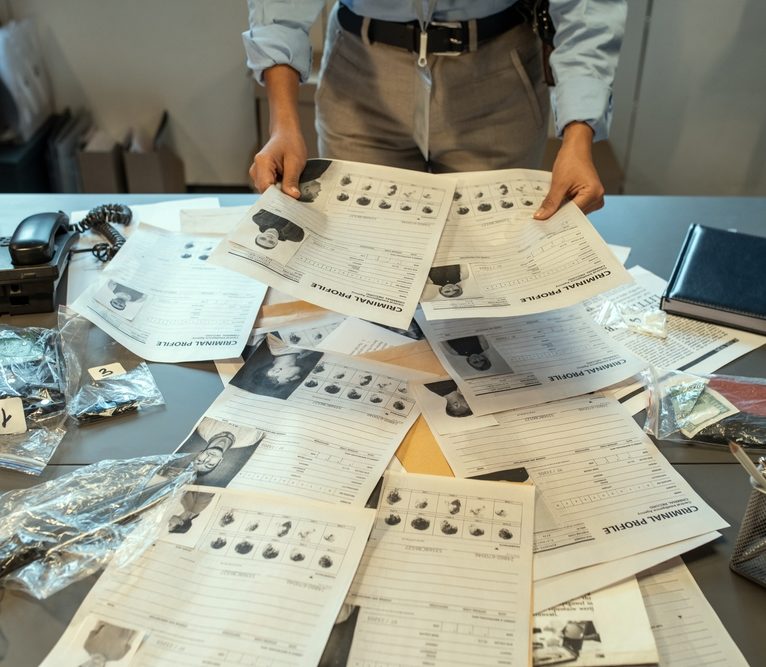
Share article:
Tags:
With over 17 years of experience, Andi is a veteran of investigation. In fact, there’s little area in the public sector that Andi has not coached and investigated, from the NHS to the Civil Service, and the House of Commons. Andi has always put people first throughout her career, much like the ethos at TCM, supporting everyone from vulnerable children to senior politicians. In the third episode of the Culture Clinic series, Andi walked us through the do’s and don’ts of investigations, sharing wisdom and knowledge from her longstanding career. As always, the session ended with an open Q&A session where participants had the chance to seek investigative advice.
True or false?
Investigations can be a subject of much confusion and contention – some are perplexed by the process or principles, and others by its alignment to the UK judicial system. Our understanding of “detectives” commonly spurns from the popularization of investigations by dramas like Sherlock Holmes. This understanding has led to much misunderstanding about the reality of investigations.
To set our minds whirring, Andi opened the floor to a game of true or false. Take a look at the following statements and decide which are correct and which are complete nonsense…
As a noun “investigation” is the action of investigating something or someone, formal or systematic examination or research.
There are 27 synonyms and antonyms for investigation.
What happens at an investigation meeting is something we might ask. Just as well, investigation meetings provide an opportunity for an investigator to interview someone who is involved in, or has information on, the matter under investigation. However, they can be difficult and emotional, particularly for someone who is under investigation or who has raised a complaint.
People often ask the question – is it legal to hire a private investigator in the UK? And the simple answer is “yes” it is. There are many services that UK Private Investigators can provide, and most reputable agencies cover the whole spectrum of investigations, backed by many years of experience, they say.
When conducting an investigation and a witness does not wish to meet with the investigator, you can play hardball – our cousins across the water say. If necessary, they suggest you have the appropriate manager issue an order to the witness requiring appearance for an interview. Then, if the witness doesn’t appear, you can write the witness up for insubordination.
Nevertheless, because your investigation may later come under scrutiny from outsiders, you need to take every possible step to secure the testimony of all truly relevant witnesses. Of course, if it turns out that that witness’s testimony isn’t necessary, you can make the decision whether to overlook the refusal to participate in the investigation. Do remember, you can confine the witness. If the witness is already in your office and gets up to leave to avoid participation, you can block the employee from leaving. If you try to prevent someone from leaving, you may be accused of false imprisonment and you may be liable for damages if you are sued.
False imprisonment is the non-consensual, intentional confinement of any length of time (even mere moments) of one or more persons by another. Note, however, that being forced to choose between answering questions or being fired is not false imprisonment.
There is no reason to force someone to participate through intimidation or by trying to lock someone in an office. Simply issue the person an order that they are to answer questions and then, if the employee fails to do so, you can move to a disciplinary warning, which may mean termination in this situation.
There are many private investigators working in the UK. What services a private investigator can offer legally, and remain within the law in the UK, is where confusion can often arise.
There is little point in conducting an investigation where the evidence is obtained illegally, putting clients at risk. Regardless of how keen a client is to obtain this.
Unfortunately, when we hear the words private investigator many people think of Magnum PI, Sherlock Holmes, or even Strike, Vincent and Shakespeare & Hathaway, but these lovable characters are huge misrepresentations of what a private investigator can do within the parameters of UK law.
Sherlock Holmes is a fictional detective created by British author Sir Arthur Conan Doyle. Referring to himself as a “consulting detective” in the stories, Holmes is known for his proficiency with observation, deduction, forensic science and logical reasoning that borders on the fantastic, which he employs when investigating cases for a wide variety of clients, including Scotland Yard.
First appearing in print in 1887’s A Study in Scarlet, the character’s popularity became widespread with the first series of short stories in The Strand Magazine, beginning with “A Scandal in Bohemia” in 1891; additional tales appeared from then until 1927, eventually totalling four novels and 56 short stories.
All but one are set in the Victorian or Edwardian eras, between about 1880 and 1914. Most are narrated by the character of Holmes’s friend and biographer Dr. John H. Watson, who usually accompanies Holmes during his investigations and often shares quarters with him at the address of 221B Baker Street, London, where many of the stories begin.
Holmes and Watson kept favoured bloodhounds as their go to canine investigators and kept 2 at 221B Baker Street.
Though not the first fictional detective, Sherlock Holmes is arguably the best known. By the 1990s there were already over 25,000 stage adaptations, films, television productions and publications featuring the detective,[2] and Guinness World Records lists him as the most portrayed literary human character in film and television history.
Holmes’s popularity and fame are such that many have believed him to be not a fictional character but a real individual; numerous literary and fan societies have been founded on this pretence. Avid readers of the Holmes stories helped create the modern practice of fandom.
Holmes frequently calls Watson’s records of Holmes’s cases sensational and populist, suggesting that they fail to accurately and objectively report the “science” of his craft.
The phrase “Elementary, my dear Watson” has become one of the most quoted and iconic aspects of the character. However, although Holmes often observes that his conclusions are “elementary”, and occasionally calls Watson “my dear Watson”, the phrase “Elementary, my dear Watson” is never uttered in any of the sixty stories by Conan Doyle. One of the nearest approximations of the phrase appears in “The Adventure of the Crooked Man” (1893) when Holmes explains a deduction: “‘Excellent!’ I cried. ‘Elementary,’ said he.”
Answers: true, false, true, false, not good practice, true, true, not good practice, true, true, true, true, true, false, true, true, true, true.
How to best conduct an investigation
Andi states that there are good practices all investigators should follow when conducting an investigation. Here are her top tips, as follows:
Terms of reference
Define your terms of reference – understand what you are being asked to investigate.
Review policies
Make sure you have reviewed the relevant internal policies and procedures and, where applicable, legislation. You need to follow these to ensure that your investigation is technically sound.
Gather evidence
Gather all relevant evidence promptly – digital evidence, in particular, may have a limited timeline of availability.
Prioritise interviewing
Prioritise who you need to interview – time affects our ability to recall events so time is of the essence.
Be open and engaging
Conduct your interviews in an open and engaging manner – you will need to structure your interview to gather as much detail as possible without leading or influencing the witness.
Remain objective
Remain objective at every aspect – interviews, reviewing of evidence and reaching your findings have to remain objectively based and unbiased.
Be thorough
Be thorough – but remember that a workplace investigation only has to be reasonable not forensically perfect.
Be emotionally aware
Be aware of emotions – you will be asking people to relive and recount events that may have been traumatic and evoke strong emotions.
Use balance of probabilities
Make your findings based on the evidence available to you at the time of your investigation and on the balance of probabilities – do you have a genuine belief, based on the evidence, that the incident was more likely than not to have occurred?
What not to do
As with all peaks, there are troughs. Andi revealed some of the most common pitfalls to avoid when investigating:
Do not be influenced
Do not be led by others – the investigation is your responsibility, don’t allow others to influence your approach, who you interview or your findings.
Do not be biased
Do not allow your own, or others, bias to influence your investigation. Be aware of your own biases and ensure that you remain objective and fair.
Do not be unreasonable
Do not be unreasonable – whether organising interviews or getting evidence, remember that you need to be flexible.
Assume nothing
Do not take anything at face value – assume nothing, believe nothing, challenge everything.
Follow internal policies
Do not fail to follow the organisation’s policies – many a case fails at Employment Tribunal because policies have not been adhered to.
Do not interrogate
Do not interrogate your witnesses – you are conducting a fact-finding investigation and need to create an engaging interview to gather as much information as possible.
Do not overlook evidence
Do not overlook or discount evidence without good reason – discounting potentially important information will jeopardise your findings and damage your reputation as an objective and competent investigator.
Do not make judgments
Do not make judgement – your role is to determine if there is a case to answer or not, you are the investigator, not judge, jury and executioner.
Do not assume
Do not assume. Everything you base your investigation on must be reflected within the evidence that you have obtained throughout your investigation and based upon a genuine belief on the balance of probabilities.
For the greatest chances of getting your investigations right first time, we always advise considering working with an external provider. Our sister company, The Investigation Company, holds a world-class pool of investigators who can prioritise your case and conduct it fairly. Alternatively, you can train your own staff to do the same via one of TCM Academy’s training courses. Andi, like all our consultants, prides herself on our fair and robust processes that are simple for our clients, from enquiry to end.
The investigation process

If you’d like to catch up on Andi’s webinar and listen in to the advice she shared with participants, you can watch the full recording below:
If you’re interested in finding out more about our investigation services, contact our relevant Coordinator Chloe Pye here for more information.














